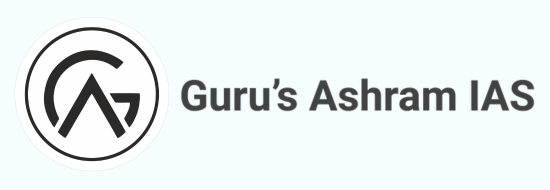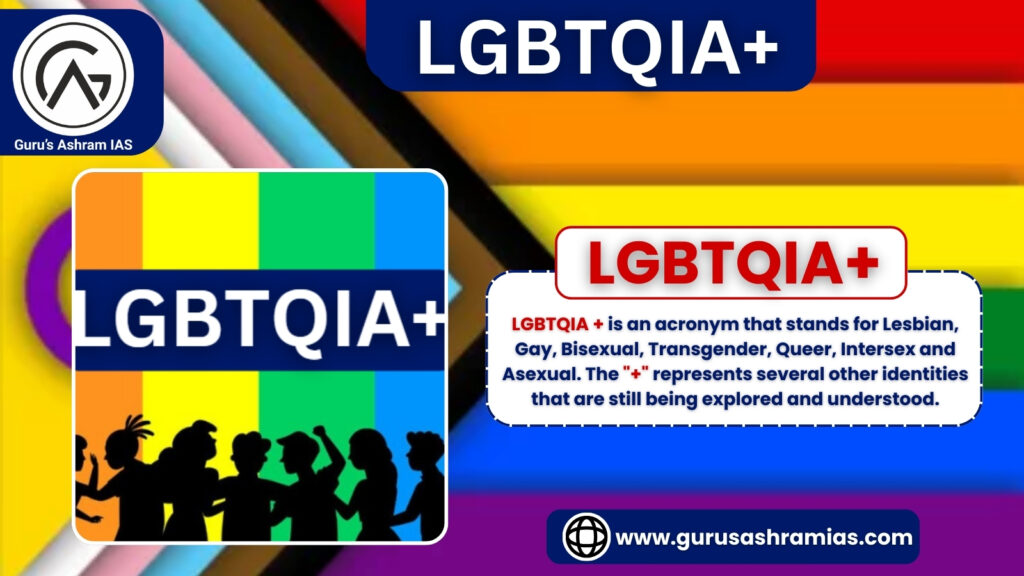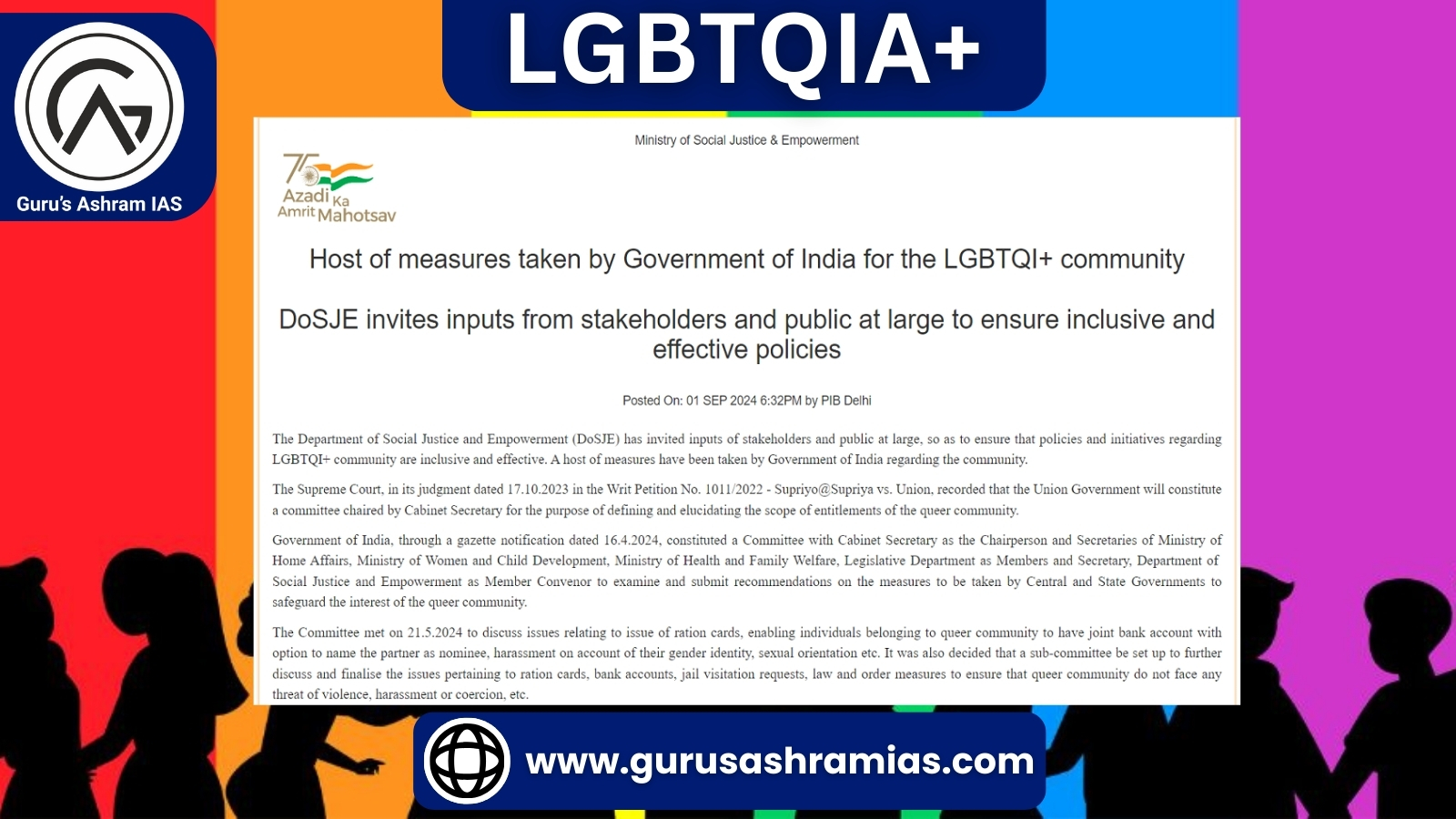LGBTQIA+
- Recently, the Department of Social Justice and Empowerment (DoSJE) has invited suggestions from stakeholders and the public to increase inclusivity in policies for the LGBTQIA + community.
- This effort follows the major actions taken by the Government of India in response to the Supreme Court (SC) directives in 2023 to protect gay rights and clarify their rights.
Note:
- LGBTQIA + is an acronym that stands for Lesbian, Gay, Bisexual, Transgender, Queer, Intersex and Asexual. The “+” represents several other identities that are still being explored and understood.
Supreme Court’s Directions Regarding LGBTQIA + Rights:
- The Supreme Court’s directions issued in its judgment regarding the recognition of same-sex marriages (Supriyo @supriya v. Union, 2023) focused on the expansion of rights and entitlements for LGBTQIA + individuals, especially in areas where they faced discrimination.
- The Supreme Court refused to recognise gay marriage but took note of the government’s plan to set up a committee to examine the rights of LGBTQIA + people and couples in same-sex relationships.
- In response to the directions of the Supreme Court, the Government constituted a Committee under the Chairmanship of the Cabinet Secretary in April 2024 to deal with discrimination in social welfare, healthcare, public services and policing.
- A sub-committee under the Home Secretary was also set up to monitor and implement these measures.
Measures taken by the government:
Ration Card Counselling:
- The Department of Food and Public Distribution has advised States / UTs to consider same-sex partners as members of the same household for the purposes of ration cards.
- Further, States / UTs have been asked to take necessary measures to ensure that partners in same-sex relationships do not face any discrimination in issuance of ration cards.
Banking Rights:
- The Department of Financial Services has confirmed that there is no bar for persons belonging to the gay community to open a joint bank account and nominate a person having same-sex relationship to receive the balance in the account in the event of the death of the account holder.
Health care initiatives:
- The Ministry of Health and Family Welfare has taken several initiatives, including ban on conversion therapy, planning awareness activities, ensuring availability of sex reassignment surgeries and revising the medical curriculum to include health issues related to homosexuality.
- The Directorate General of Health Services has issued letters to state health departments to reduce discrimination and ensure accessible healthcare for the LGBTQI + community.
- Guidelines for medical intervention in infants / children with intersex conditions have been formulated to ensure medically normal life.
- In addition, the Ministry is also working on guidelines for the mental health and well-being of the gay community.
Jail visits and Law & Order Consultations:
- The Ministry of Home Affairs (MHA) issued an advisory to all States / UTs regarding prison visitation rights for the gay community and law and order measures to ensure their protection from violence, harassment or coercion.
What other measures have been taken regarding the LGBTQIA + community:
- National Portal for Transgender Persons
- The House of Glory
- The Transgender Persons (Protection of Rights) Rules, 2020
- Support to Marginalized Persons for Livelihood and Enterprise (SMILE) Scheme
- National Council for Transgender Persons
- Swachh Bharat Mission (Urban) It has included dedicated toilets for transgender persons in its policy guidelines.
- Ayushman Bharat TG Plus Card: It provides access to more than 50 free health facilities to the transgender community by linking the SMILE scheme with the Ayushman Bharat scheme.
Special:
The Supreme Court decriminalized homosexuality:
- In the Navtej Singh Johar and others vs Union of India case, 2018, a five-judge bench of the Supreme Court partially struck down Section 377 of the Indian Penal Code, thereby decriminalising consensual gay sex between adults. LGBT individuals are now legally allowed to have consensual sex.





